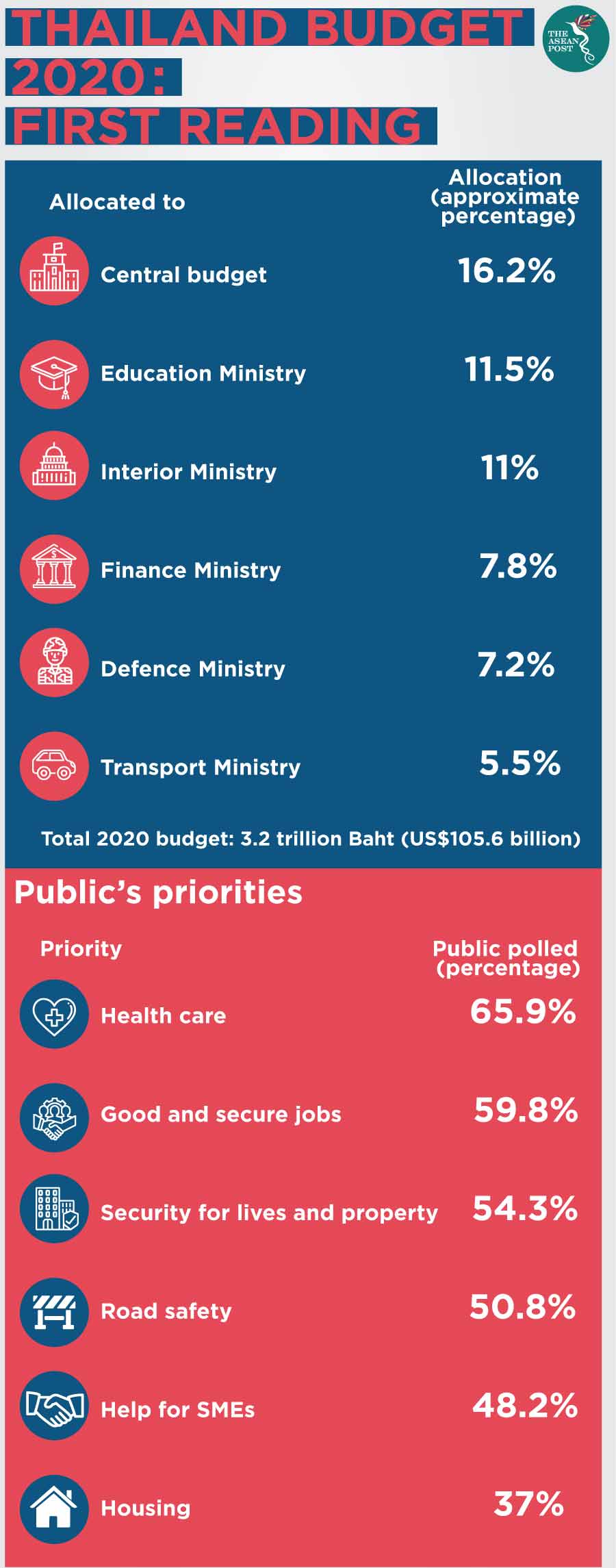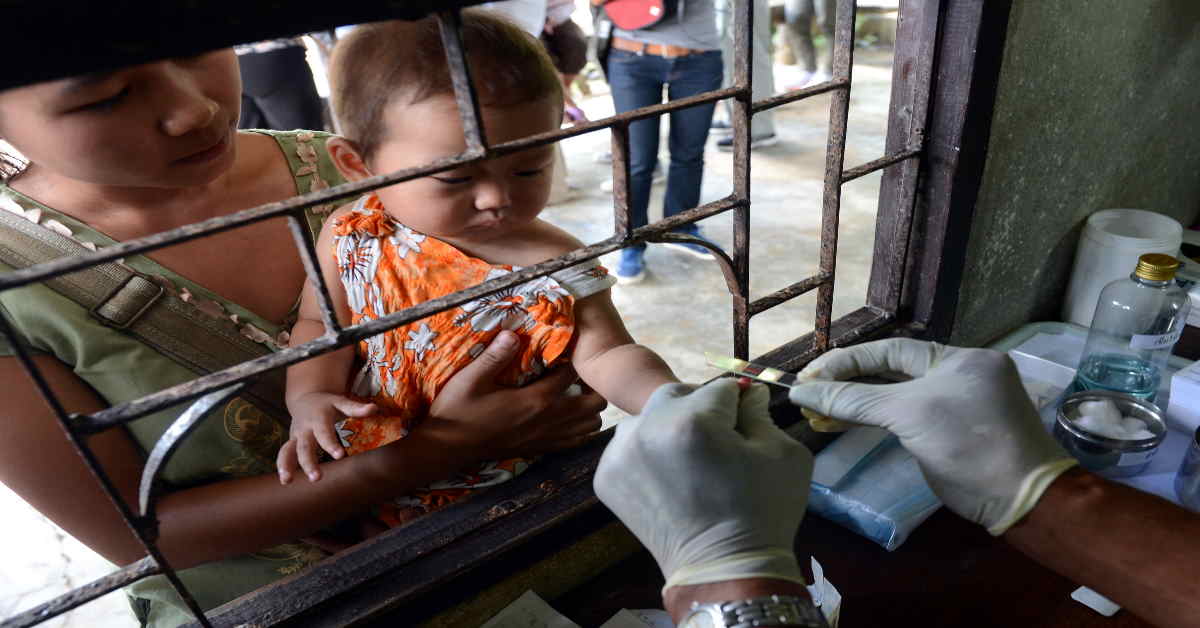In a few months’ time, the current Thai government’s position could be hanging in the balance. This is thanks to the country’s 3.2-trillion-baht (US$105.6 billion) fiscal 2020 budget which will have its third reading on 9 January next year.
The 2020 fiscal year began on 1 October and its first reading was held recently on 19 October. The second and third readings of the budget bill, however, will not be held until 8 and 9 January, respectively. The first reading was only to approve the bill in principle, the second reading will discuss the bill by section, and the third reading will determine whether the bill will be passed in its entirety.
If the bill is turned down at the third reading, it will be scrapped and, according to tradition, the government must show responsibility by resigning and dissolving the House.
The opposition could grab this opportunity to get the ruling government out of office, and if this is the game it wants to play then having the budget rejected at its third reading becomes crucial. In turn, the government would most certainly want to see the budget being passed.
During the first reading, of the 486 members of parliament (MPs) present, 251 voted in favour, 234 abstained, and one did not cast a vote.
The most debated item in the budget this year has been the central budget or contingency budget at the disposal of the prime minister, who can approve it without parliamentary review. It makes up the largest portion, 16.2 percent, of the budget for the first time in 14 years, surpassing the allocation to the Education Ministry which has typically enjoyed the biggest allocation for years.
This year, the budget allocated to the Education Ministry has been split between it and the newly established Higher Education Ministry. Nevertheless, the total allocated to both ministries is still lower than the central budget at 16.3 percent.
What Thais want
While politicians will continue politicking, it is even more important to gauge public opinion on something as crucial to their lives as the national fiscal budget.
Prior to the 2020 budget’s first reading, the Super Poll Research Centre conducted qualitative and quantitative research on 1,069 people from a wide range of occupations nationwide between 15 and 19 October. Several interesting findings were made during the course of this study.

Firstly, on the question of government spending, the survey showed that as many as 65.9 percent of respondents placed quality healthcare as their top priority. Meanwhile, 59.8 percent want good and secure jobs, 54.3 percent want security for their lives and property, 50.8 percent want increased road safety, 48.2 percent want government help for small and medium-size enterprises, and 37 percent want the government to provide them with housing.
But this wasn’t the only thing the Super Poll survey revealed. It is equally interesting to note that the division between Thais’ opinions on the government and opposition were miniscule, showing a lack of concern regarding who held the reigns of the government as long as their needs – in this case, particularly healthcare – were taken care of.
According to Super Poll, 67.2 percent of respondents admitted that they preferred not to take sides with the government or opposition because both are currently “under-performing” and they want to wait to assess their performance. It also found that of those who supported the government or the opposition, 16.9 percent of the respondents are supportive of the coalition government, compared to 15.9 percent who oppose it. This was a difference of only one percent.
The survey goes to show that at the end of the day, it is bread and butter issues that the majority of the people care about and this can be said of nearly every country. Whether or not their priorities change in the next few months – before the budget’s final reading – it is hoped that the government will remember this simple fact of life.
Nevertheless, what the Thai people want and what the people need might be two completely different things as well. In the end, the people of Thailand will have to wait and see how the budget turns out on its third and last reading.
Related articles:
